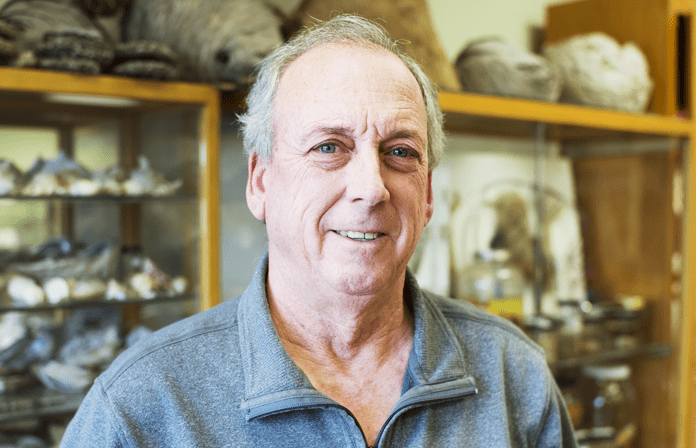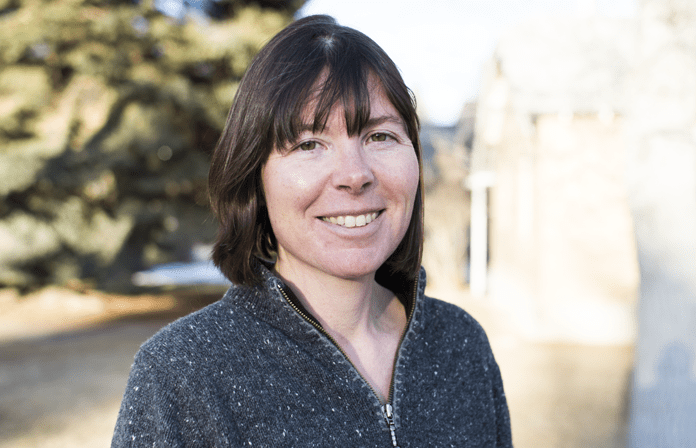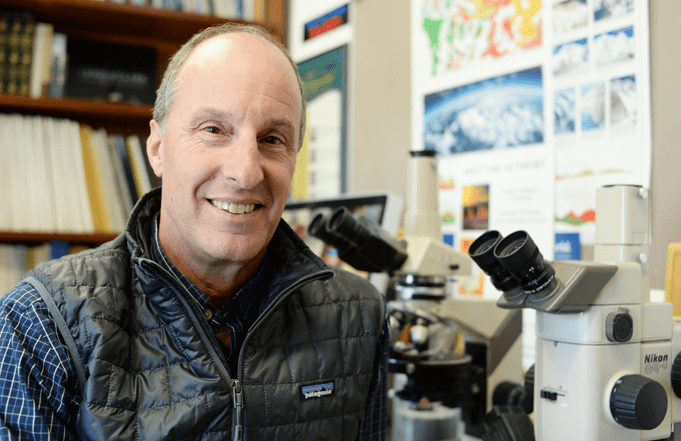November 13, 2018
Montana Western faculty members Jack Kirkley, Michelle Anderson and Rob Thomas presented their research in this year’s Montana Research Roadshow which was organized by the Montana University System’s Office of the Commissioner of Higher Education. These events feature the innovative research being conducted at Montana’s public universities.
The roadshow tour was broken into four tour regions which covered a total of 25 Montana towns. Researchers were distributed among the different regions and charged with presenting a ten-minute synopsis of the research they and their students are conducting.
Professors Kirkley and Anderson presented their research October 17-19 on the eastern tour with stops in Billings, Roundup, Forsyth, Miles City and Broadus, Mont. Professor Thomas presented his research in the towns of Missoula, Polson, Kalispell and Libby, which made up the western tour, from October 24-26.

Kirkley gave a presentation titled “What Can Hawks Tell Us About the Health of Our Environment?” His research focuses on Northern Goshawks and other forest raptors. Goshawks are indicator species, meaning they are a top predator whose presence, absence or abundance reflects the overall prey base of that forest. In his research, Kirkley and his students went out into the field and attached radio tags to birds, making it possible to track their movements and behaviors year-round to see what other habitats they utilize during non-breeding times of the year.
“Students can be involved in various aspects of research work,” said Kirkley, who is a biology professor at Montana Western.
Kirkley also expressed how the Research Roadshow presented an opportunity to collaborate with researchers throughout the state.
“I personally gained appreciation for the broad spectrum of ways faculty are making research interesting for their students and communities,” Kirkley said.

Anderson, also a biology professor at UMW, presented on “Human-Wildlife Relations in Montana Landscapes.” In her talk, she looked at a variety of human-wildlife interactions ranging from how flood-irrigation on agricultural lands can affect water bird wetland habitat, to the influencing factors of migrating song birds colliding with building windows on college campuses. She also explained how Montana bat populations could serve as a model in the west for the emergence of white-nose disease, a deadly fungal disease affecting bats in the U.S. Anderson has also been involved with long-term wildlife and habitat research projects, including those conducted at Red Rock Lakes National Wildlife Refuge.
“I find research most rewarding when it matters to the public, and contributes to our ongoing understanding of how fish, wildlife, and people relate to each other,” Anderson stated about her research.
Montana Western’s block scheduling system has allowed Anderson to maintain a successful teacher-researcher model. She feels that UMW’s Experience One program, small class sizes and proximity to diverse research study areas helped make these opportunities for students possible.
“The Research Roadshow was an exciting way to share these experiences,” she said.

Rob Thomas is a Professor of Geology at Montana Western in the Environmental Sciences Department and has been performing stream restoration research since the 1990s. For his presentation, Thomas explained how Experience One has been pivotal to his research with students because it allows for flexibility in relation to conducting field-based research projects that may not be possible in the traditional course scheduling model.
“Experience One prepares our students for real-world work environments and graduate thesis work,” said Thomas.
Thomas presented in his talk titled “Saving Fluvial Arctic Grayling One Class at a Time,” the work he and his students have conducted to assess stream restoration efforts to protect endangered fluvial Arctic grayling in the upper Big Hole River drainage. Another research project Thomas’s students have conducted focuses on the assessment of the stream restoration of Poindexter Slough, a famous fly-fishing destination, located about four miles south of campus. Students have been conducting all of the assessment work and then writing collaborative reports, sometimes up to 500 pages in length, that are then utilized by Montana Fish, Wildlife and Parks and other agencies to make management decisions.
For more information about the Research Roadshow, visit the Montana University System website.